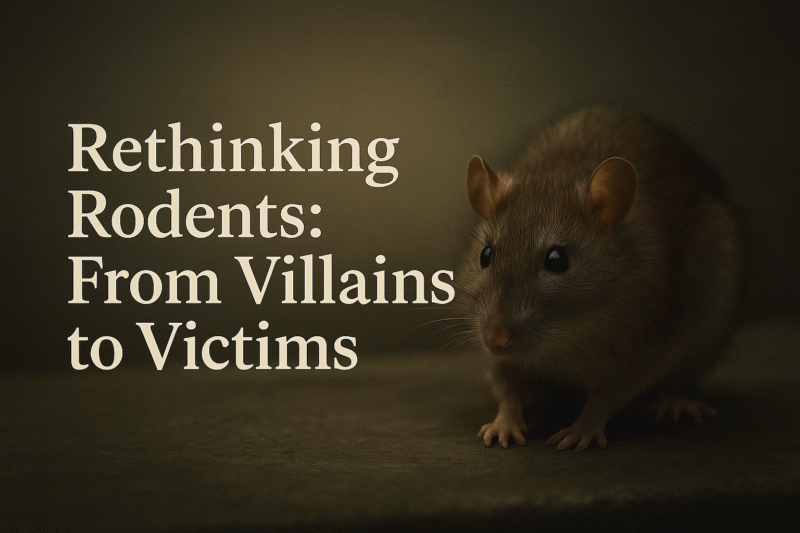
Rodents have often been cast as villains, portrayed as pests to be eradicated without a second thought. Pest control campaigns frequently depict rodents as nuisances to be ridiculed and exterminated, normalizing their inhumane treatment. This perception does them a grave disservice, overlooking their capacity for feeling pain and suffering. Society’s selective compassion towards certain animals, such as dogs and cats, further exacerbates this issue, allowing us to ignore the suffering of rodents. It’s time we rethink our approach and recognize that rodents deserve compassion, not extermination.
Ethical Considerations: Treating Rodents with Compassion
Rodents, such as mice and rats are sentient beings capable of experiencing pain and suffering. Just as we wouldn’t want to be subjected to inhumane treatment, we should extend the same courtesy to rodents. Their lives have intrinsic value, and it is our ethical duty to treat them with respect and kindness.
Society has conditioned us to have selective compassion towards certain animals, such as dogs and cats, while disregarding the suffering of others, like rodents. This selective empathy allows us to ignore their pain and justify using the most inhumane traps to kill them. It’s crucial to challenge this bias and recognize that all sentient beings, regardless of species, deserve compassionate treatment.
Glue-trap manufacturers generally direct consumers to throw away animals along with the trap, leaving the animals to suffer for days until they finally die of stress, starvation, or dehydration—all cruel and painful deaths.
While it’s understandable that rodents can be a nuisance, especially when they invade our homes, it’s crucial to address these issues humanely. Mice and rats are often forced into human environments when their natural habitats are lost to development. These gentle rodents are highly social creatures who become attached to each other and love their families. They enjoy playing, wrestling, and sleeping curled up together. So the next time these little rodents raid your ramen noodles, be kind—live-trap and release them outside.
Reevaluating Pest Control Services and Marketing
A critical step in fostering a more compassionate approach is to stop including rodents in pest control services. Traditional pest control methods often involve lethal measures that cause unnecessary suffering. Effective, humane methods of rodent control do not target the animals themselves; rather, they target what attracts animals to certain areas. Mouse-proofing your house is as easy as denying mice access to food and a place to nest. Pest control services can focus on exclusion techniques, habitat modification, and education to prevent rodent issues without resorting to extermination.
Moreover, it is deeply troubling how pest control marketing campaigns often depict the death of rodents as something trivial or humorous. These campaigns desensitize us to the suffering of these animals and promote a culture of disregard for their well-being. By presenting rodents as mere pests to be ridiculed and exterminated, these campaigns perpetuate an attitude of inhumane treatment. It’s crucial to challenge this narrative and advocate for marketing strategies that reflect a more compassionate and respectful approach toward all living beings.
A Call to Action: Embracing Coexistence
In conclusion, it’s time we shift our perspective and embrace a more compassionate and ethical approach to dealing with rodents. By recognizing their sentience and treating them with respect, we can foster a harmonious coexistence with these often-misunderstood creatures.
Let’s challenge the narrative that rodents are merely pests to be exterminated and instead, appreciate their capacity for suffering. Together, we can create a future where all living beings are treated with the compassion and dignity they deserve.
Recommended Reads: Protecting Cultural Beliefs: Why Facts About Animal Exploitation Seem to Fail in Changing Minds
